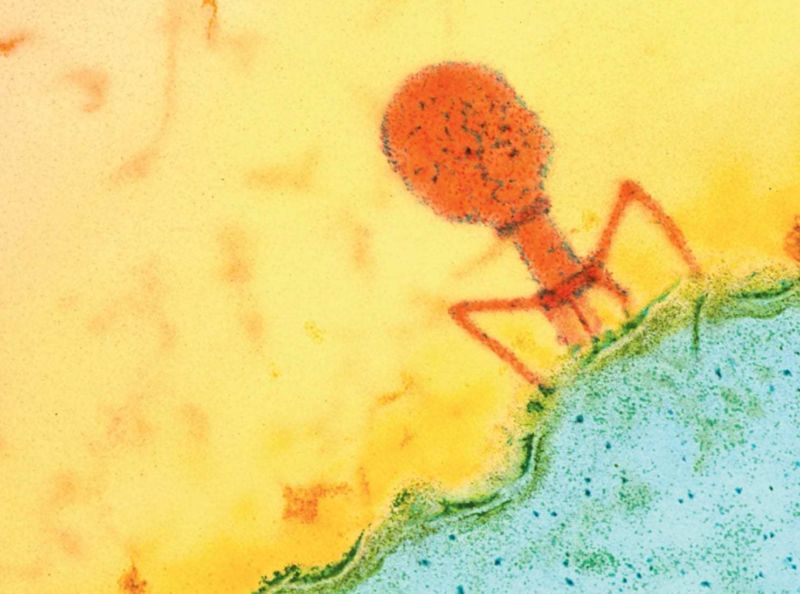
Enlarge / A false color image of a phage attached to a bacterium. (credit: Lawrence Berkeley Lab)
About a third of the food that we grow, along with all of the effort and energy and labor and resources put into growing it, goes to waste. Much of it is thrown out by consumers or rots on shelves. But a substantial fraction of it is attacked by pests while still in the field.
Bacterial wilt infects a number of crops throughout the world, including tomatoes, potatoes, peanuts, and tobacco. It is caused by Gram-negative bacteria. As with human antibiotics, treating agricultural pathogens suffers from problems with destructive, broad-spectrum, and increasingly ineffective pesticides. And just as in humans, people have suggested using viruses to attack the bacterial pests.
Phages are viruses that infect bacteria. They are highly selective, disabling only the bacterial species they specifically target and leaving neighboring bacteria alone. Since undesirable pathogens are often mired within a diverse bacterial community containing species that we want·(both in our guts or in the soil), this specificity is usually preferable to antibiotics and pesticides that indiscriminately kill every microbe they encounter.
No comments:
Post a Comment